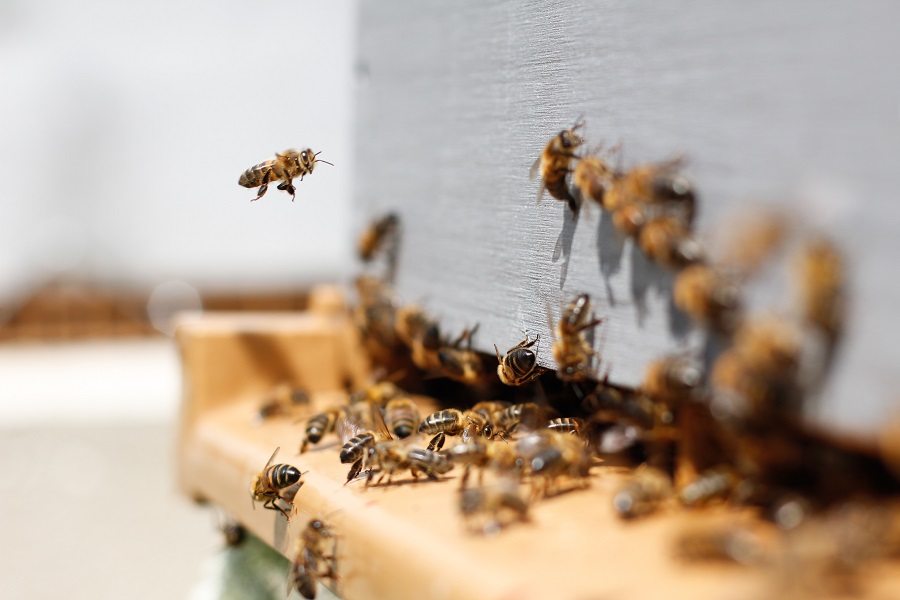Sustainable precision pollination: BeeHero introduces Healthy Hive Score
BeeHero, a pioneer of data-driven precision pollination, has introduced a new metric for measuring bee health that promotes bee welfare management among industry stakeholders
This is the latest initiative designed to protect and promote healthier bee populations, and follows a European plan dubbed ‘a new deal for pollinators’. That initiative ties in with a citizens’ initiative to “save bees and farmers” and it outlines actions that could be taken by the EU and member states to reverse this decline by 2030.
BeeHero, whose new assessment model arrives on the heels of another milestone where the company estimates that the deployment of its unique Internet of Things (IoT) sensors collectively saved a quarter of a billion bees this past year, as beekeepers using BeeHero’s technology have reported 33% fewer colony losses compared to the US national average.
As the human population continues to rise, growers are faced with the challenge of producing more food with fewer resources. Bee pollination is indispensable to this production of the world’s most valuable and nutritious foods, providing $18 billion annually in value to US agricultural crops alone, BeeHero said.
However, nearly 40% of managed honey bee colonies in the US were lost between 2021-2022, posing a major threat to the pollination of these vital food crops and future global food supply. To ensure continued successful bee pollination, steps must be taken urgently to measure and promote bee welfare.
As the world’s largest provider of Precision Pollination as a Service (PPaaS), BeeHero possesses the largest database of bee behaviour in existence. Based on a combination of this data, drawn from hundreds of thousands of monitored colonies, and existing academic research, the BeeHero Healthy Hive Score provides beekeepers with an evaluation model to assess colony health based on colony growth, brood health, and queen presence, normalised against weather conditions and flight hours.
According to BeeHero, utilising this system affords beekeepers a comprehensive view of the health of their colonies, enabling them to take proactive measures to prevent colony loss and ensure bee welfare. For growers, this metric allows for more informed decisions about crop pollination that can maintain bee health while increasing yields. The Healthy Hive Score is also designed to allow retailers and consumers to make conscientious, informed purchasing decisions to support bee welfare.
Omer Davidi, Co-Founder and CEO of BeeHero, said: “While beekeepers and growers depend upon strong and healthy hives, they have long struggled to accurately see inside their hives to better understand and care for their colonies, leaving both their crop yields and bottom lines at risk. The Healthy Hive Score is our latest innovation providing a window into the hive, enabling industry stakeholders to take critical, data-driven action and better manage their colonies, their pollination, and their yields. We look forward to continuing to leverage nature’s data to provide further fruitful insights to our beekeeper and grower partners.”

The first application of BeeHero’s Healthy Hive Score was during the 2023 almond pollination season in California. Growers received scores based on analysis of each of the orchards pollinated by hives under BeeHero management. Based on the average outcome of almonds per acre, growers that worked with BeeHero during this season collectively produced about 270 million pounds of almonds all grown under bee-friendly conditions.
“Bees are not only vital crop pollinators, but fascinating and vibrant creatures whose welfare should be thoughtfully considered and conscientiously managed, much like any natural resource we depend upon,” said Itai Kanot, Co-Founder and COO of BeeHero. “Today, beekeepers face numerous challenges in keeping their colonies alive and well, and there is growing societal awareness of the humane treatment of all animals raised for food, including bees. We are proud to have helped prevent the demise of a quarter of a billion bees, and we are thrilled to continue to offer beekeepers tools to measure the effectiveness of their efforts, assisting them in changing the fate of their colonies and ensuring thriving, buzzing hives.”
Elsewhere in bee and pollination news, back in January the British Bee Keepers’ Association (BBKA) was calling on the UK government to ban neonicotinoids.
It said in a statement: “The UK government has yet again issued a licence for the temporary use of this banned bee-killing pesticide just days after the EC High Court ruled that all temporary licences for banned pesticides were forbidden in Europe.
“Our government’s Environment Policy rewards farmers for planting more wildflowers for pollinators. Surely these temporary licences make a mockery of encouraging more pollinators onto farmland.
“As a matter of urgency, the BBKA would be grateful if you could register your opposition to any use of banned bee-killing pesticides by writing to your MP.”
Back in August 2022, the CB Dennis British Beekeepers’ Research Trust, Bee Diseases Insurance Ltd and The British Beekeepers Association combined to fully fund a three year research studentship into bee health.
British Universities and Research Institutes were invited to apply with a research proposal that would improve our understanding of bee health and contribute to the long-term benefit of bees.
The President of Bees Disease Insurance, Martin Smith said, ‘The ability to provide greater resources to support research into bee diseases through this joint arrangement must be a good thing. We hope significant results will be forthcoming.’
For more trade talk news, click here
Join us at SIAL Paris as exhibitor Join us at SIAL Paris as visitor
